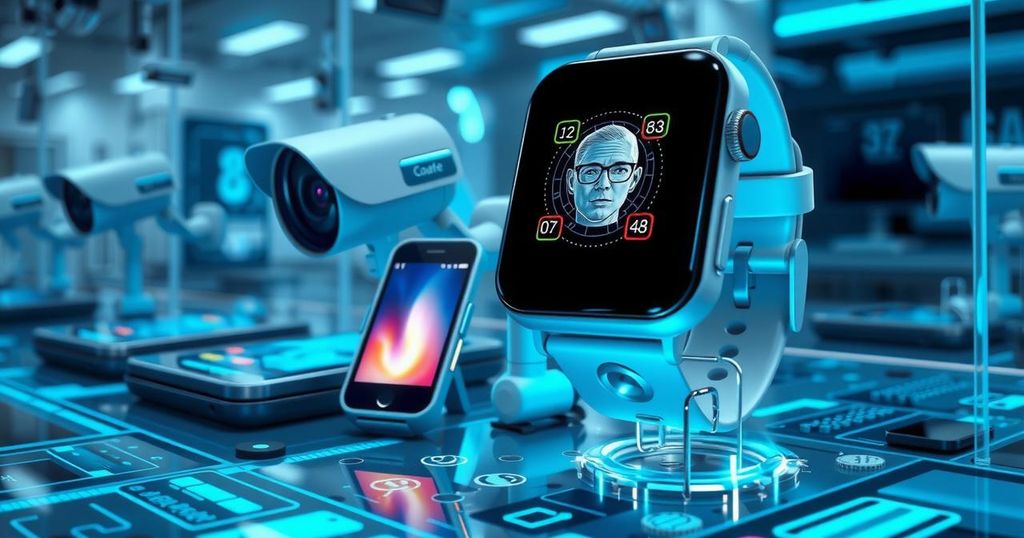Veritone has significantly upgraded its Track tool to include AI-assisted vehicle tracking, enabling authorities to monitor vehicles without using personal information, enhancing video analysis capabilities across various sources. These enhancements facilitate better public safety responses but raise constitutional concerns regarding privacy and surveillance practices.
Veritone has unveiled substantial upgrades to its video forensics tool, Veritone Track, which now incorporates AI-assisted vehicle tracking capabilities. This enhancement allows authorities to efficiently monitor and track vehicles across a variety of video sources without the need for personally identifiable information or labor-intensive manual processes. Originally launched as an object-recognition service focused on individuals through spatial and visual cues, Veritone Track eschews facial recognition and biometrics in favor of a license plate-free tracking system. The new vehicle tracking functionality enables users to identify cars by their make and model utilizing footage from multiple channels such as CCTV, body cameras, drones, social media, and user-uploaded content. The revamped user interface streamlines operations by automatically compiling video footage into coherent timelines, enhancing user experience and operational efficiency. In response to this development, Jon Gacek, Veritone’s general manager for Public Sector, highlighted the integration of these enhancements with Veritone’s intelligent digital evidence management system, iDEMS, which is powered by the enterprise AI platform aiWARE. He noted, “Veritone Track’s latest enhancements significantly improve search and performance…to efficiently respond to public safety threats.” The tool is also set to boost the efficacy of video surveillance for large-scale public events, security for buildings, and more comprehensive inter-jurisdictional data sharing. Gacek indicated potential applications in tracking military vehicles as well. However, the implementation of such surveillance methods raises constitutional questions regarding privacy and possible violations of the Fourth Amendment. Recent incidents, like a major data breach involving Veritone where sensitive documents became accessible online, further complicate trust in the company’s practices. Law enforcement’s growing reliance on AI-driven surveillance technologies has been scrutinized, particularly concerning the ethics around facial recognition and algorithmic biases that may lead to wrongful arrests. Further complicating the conversation, companies like Flock Safety, which utilize automated license plate readers, are currently facing legal challenges regarding the constitutionality of their surveillance practices. A lawsuit filed against Flock by the Institute for Justice contends that pervasive camera networks facilitate warrantless surveillance, illustrating the growing tension between technological advancements in surveillance and the safeguarding of civil liberties.
Veritone Track represents a technological leap in the realm of video forensics, emphasizing privacy-respecting AI tools for tracking both individuals and vehicles. By not relying on traditional biometric measures, the system aims to fulfill the increasing demand for public safety solutions amidst rising concerns over privacy violations in the context of law enforcement. Tracking by vehicle make and model, rather than through identifiable information, reflects a shift towards more inclusive, yet controversial surveillance options. The enhancement aligns with law enforcement’s broader trend of adopting high-tech surveillance measures but raises significant questions about individual privacy rights amid fears of overreach and unwarranted intrusions. The legal landscape is evolving rapidly, with civil liberties groups challenging the limits of surveillance technology in court, indicating a contentious battle between technology’s benefits and civil rights protections.
Veritone’s updated Track tool illustrates the dual-edged nature of advanced surveillance technologies in public safety efforts. While it enhances capabilities for tracking vehicles without compromising personal data, it simultaneously raises pressing ethical and legal concerns surrounding privacy rights. The scrutiny faced by AI-driven surveillance systems suggests that as technology advances, so too must the frameworks for its oversight, balancing public safety with constitutional protections.
Original Source: www.biometricupdate.com







